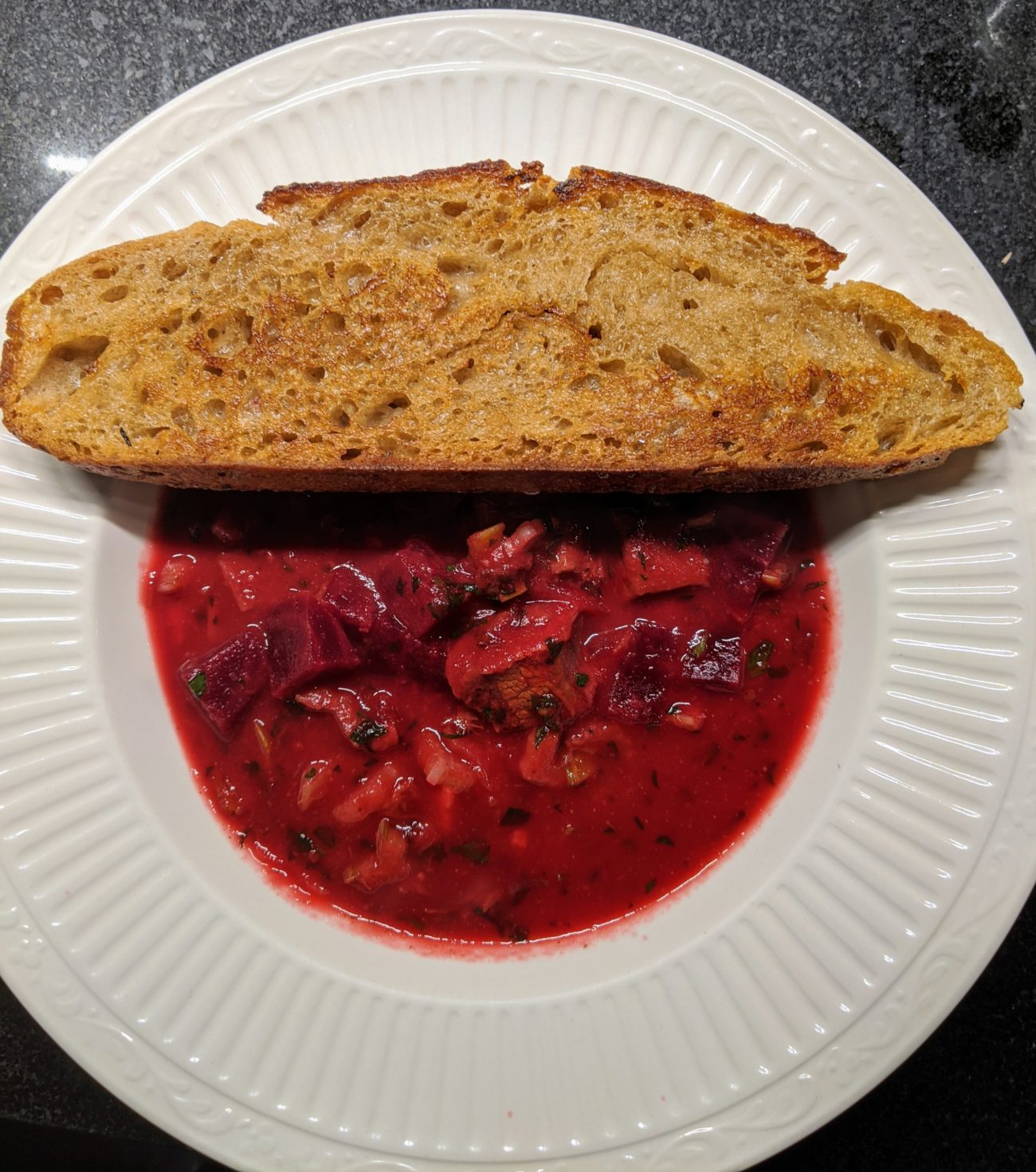
Four weeks ago, I was not yet technically unemployed. The previous week, I’d dutifully gone to work, where there was less and less business and the daily news was which events were cancelled. We all knew what was coming. We all needed the paycheck. So we showed up, and talked in the locker room about who’d been let go that day, and what would happen to us and when. And then we went into the kitchen and stared at each other for a minute, before we found things to clean, and tried to pass the minutes as they got emptier.
Most of my colleagues have kids, loans, partners who don’t make enough to support the household even if they keep their jobs. I rode my bike home everyday, despairing of losing the comfort of a steady paycheck, and fully aware that “comfort” wasn’t the word most of them would use to describe it. No one I knew had been personally affected by the virus yet, but it was a dark time: anxious, hopeless, and scary.
These feelings didn’t make me want to cook a beef tongue. Even before I was jobless and busy slinging home-cooked meals to bring in some kind of money, tongue wasn’t my favorite. A hard working muscle, it takes nicely to a braise, but it lacks the well-interspersed fat of chuck–my fave for pot roast–or the cultural heft of brisket. It used to be trendy to corn it; a preservation method that nods at the fact that outside of a taco, we don’t love tongue enough to buy it in quantity. Peeling it is a little fiddly: it has to be fully cooked, it has to be hot, but not too hot, you might shred the tip and make it look less attractive even when you get it right.
Years of kitchen practice are an effective substitute for therapy or antidepressants in one small but significant way: one learns to evaluate the very least that must be done to keep moving forward. If this becomes a practice, you get about three days before you’re irredeemably in the weeds, but when it’s a light case of the doldrums at the end of a weekend (a detrimental construct in the absence of formal work), knowing that all that’s necessary to not fall behind is to put the damn tongue in a brine is more helpful than it should be. And when that little thing is done, all the other dominoes behind it loom smaller.
So first you put the tongue in the brine. If you’re just braising it, start with the basic, and use the spice-brine steeping method to introduce a few–not more than 5–herbs/spices from your cabinet for interest: rosemary, fresh garlic, black pepper, thyme and maybe chile flakes would be nice. Add a little–2-5% of your water weight–sugar (brown, granulated, whatever), and you’ll be on your way. I tried dehydrated garlic powder because it’s roasty and I’d used all my fresh garlic.
Then you braise it, covered, with aromatics, and maybe wine. Definitely use stock if you have some. Let it go at least three hours at 325˚F, or drop it to 275˚F and take it as far as six. When it pierces effortlessly with a skewer, remove the pan from the oven. Put on a couple of layers of gloves, remove the tongue from the pan the instant you can do so, and peel off the membrane. Return the tongue to the braising liquid: braised meats hate to be left dry.
There’s a little bit of magic to the boneless, hard-working, cartilagenous parts: That cooking liquid will still come out sticky with collagen, as will the tongue itself. Take advantage of this: make a pot roast or stew, or heat a little salsa with some cooking liquid for something truly qué rico.
Years ago, I was inspired to take on borscht as a meaty, hearty stew, rather than a purple soup novelty. Of course, I forgot that we were out of sour cream, but I made do with buttermilk. Beefy borscht is always fun: a little unexpected, easy to balance out, healthy, and rich.
So that’s what I made, one step after another.